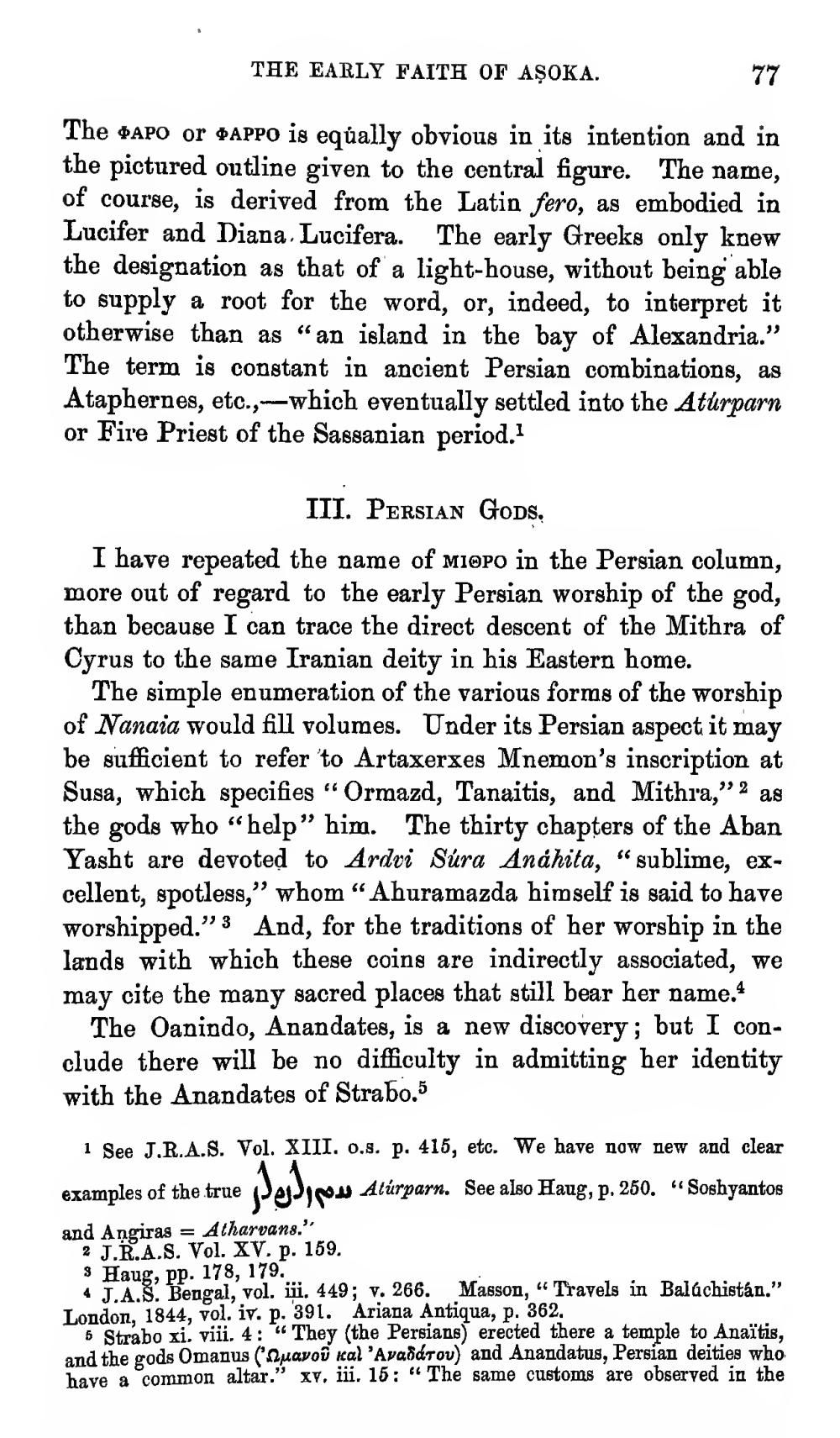________________
THE EARLY FAITH OF ASOKA.
177
The APO or APPO is equally obvious in its intention and in the pictured outline given to the central figure. The name, of course, is derived from the Latin fero, as embodied in Lucifer and Diana. Lucifera. The early Greeks only knew the designation as that of a light-house, without being able to supply a root for the word, or, indeed, to interpret it otherwise than as "an island in the bay of Alexandria." The term is constant in ancient Persian combinations, as Ataphernes, etc.,-which eventually settled into the Aturparn or Fire Priest of the Sassanian period.1
III. PERSIAN GODS,
I have repeated the name of MIOPO in the Persian column, more out of regard to the early Persian worship of the god, than because I can trace the direct descent of the Mithra of Cyrus to the same Iranian deity in his Eastern home.
The simple enumeration of the various forms of the worship of Nanaia would fill volumes. Under its Persian aspect it may be sufficient to refer to Artaxerxes Mnemon's inscription at Susa, which specifies "Ormazd, Tanaitis, and Mithra," 2 as the gods who "help" him. The thirty chapters of the Aban Yasht are devoted to Ardvi Súra Anahita, "sublime, excellent, spotless," whom "Ahuramazda himself is said to have worshipped." And, for the traditions of her worship in the lands with which these coins are indirectly associated, we may cite the many sacred places that still bear her name.1
The Oanindo, Anandates, is a new discovery; but I conclude there will be no difficulty in admitting her identity with the Anandates of Strabo.5
1 See J.R.A.S. Vol. XIII. o.s. p. 415, etc. We have now new and clear Atúrparn. See also Haug, p. 250. "Soshyantos
examples of the true
سم را در
and Angiras = Atharvans."
2 J.R.A.S. Vol. XV. p. 159.
3 Haug, pp. 178, 179.
4 J.A.S. Bengal, vol. iii. 449; v. 266. London, 1844, vol. iv. p. 391. Ariana Antiqua, p. 362.
5 Strabo xi. viii. 4: "They (the Persians) erected there a temple to Anaïtis, and the gods Omanus (Quavou kal 'Avadárov) and Anandatus, Persian deities who have a common altar." xv. iii. 15: "The same customs are observed in the
Masson, "Travels in Baluchistan."




